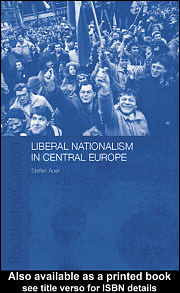
Civic nationalism, or civil nationalism, is the form of nationalism in which the state derives political legitimacy from the active participation of its citizenry, from the degree to which it represents the "will of the people". It is often seen as originating with Jean-Jacques Rousseau and especially the social contract theories which take their name from his 1762 book The Social Contract.
Civic nationalism lies within the traditions of rationalism and liberalism, but as a form of nationalism it is contrasted with ethnic nationalism. Membership of the civic nation is considered voluntary, as in Ernest Renan's classical definition of the nation as a "daily plebiscite" characterized by the "will to live together". Civic-national ideals influenced the development of representative democracy in countries such as the United States and France (see the United States Declaration of Independence of 1776, and the Declaration of the Rights of Man and of the Citizen of 1789).
State nationalism is a form of civic nationalism where the focus is on the membership that comes with being born (or living) within a country's borders, regardless of the person's ethnic origin. This form of nationalism is in strong contrast to ethnic nationalism.
No comments:
Post a Comment